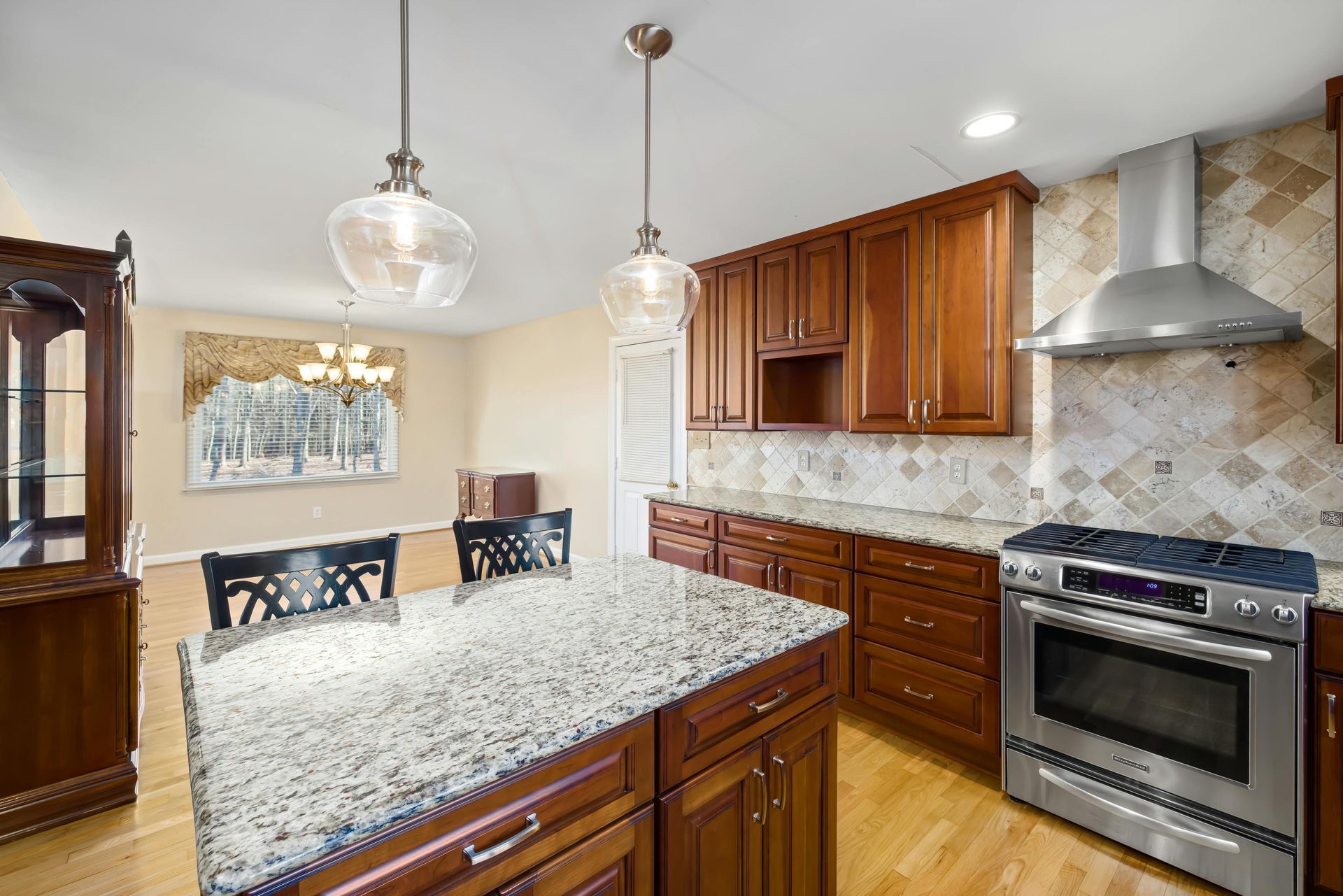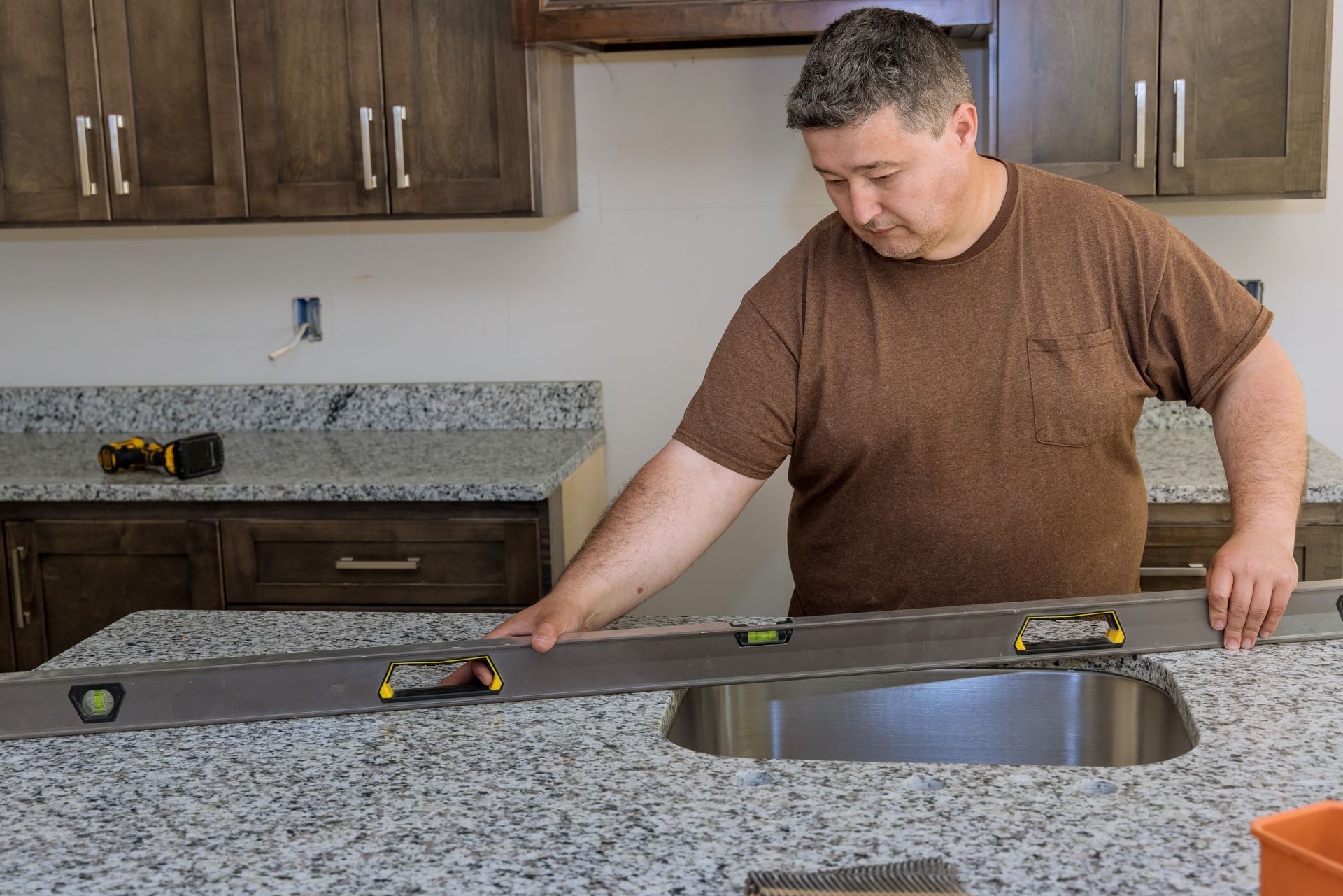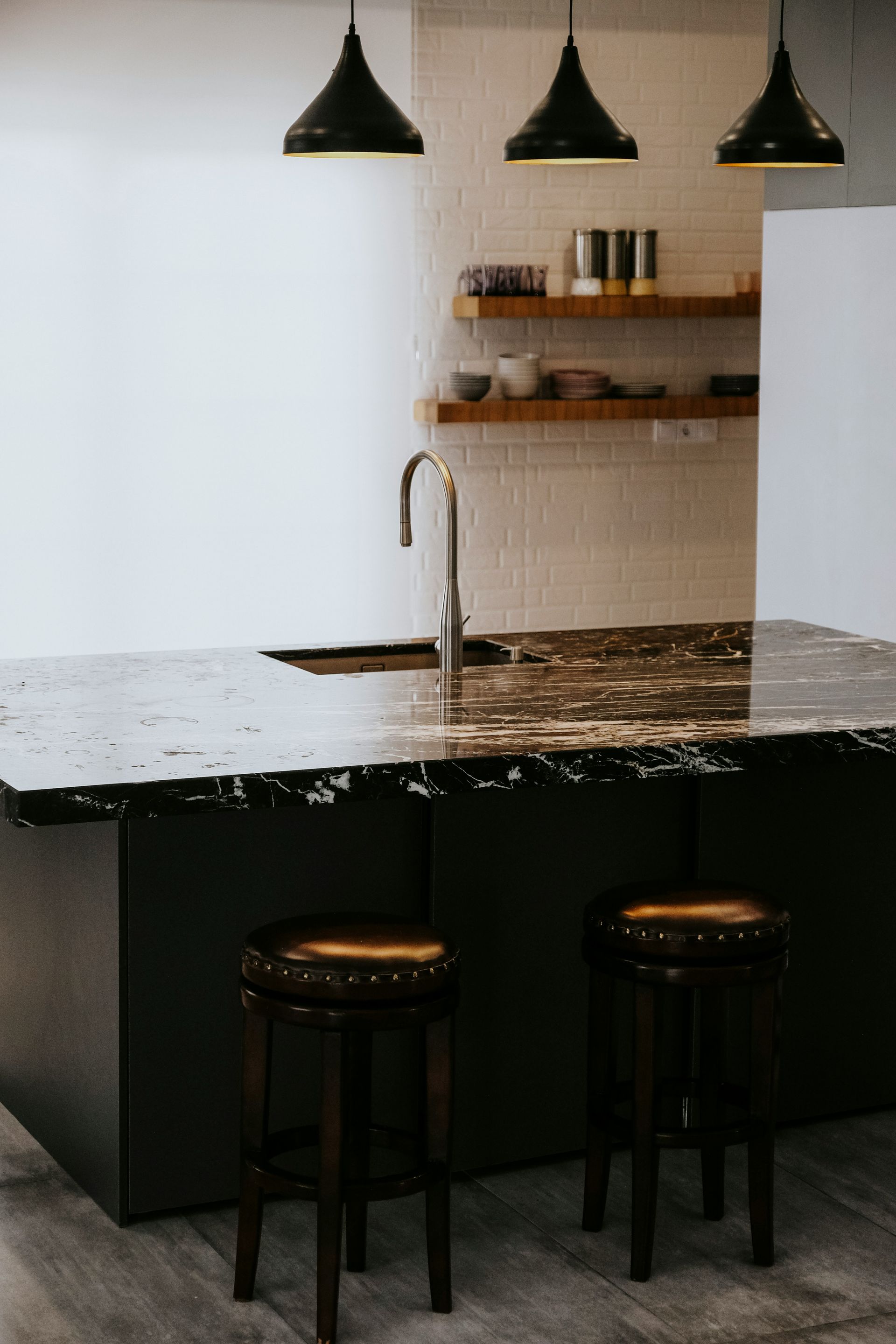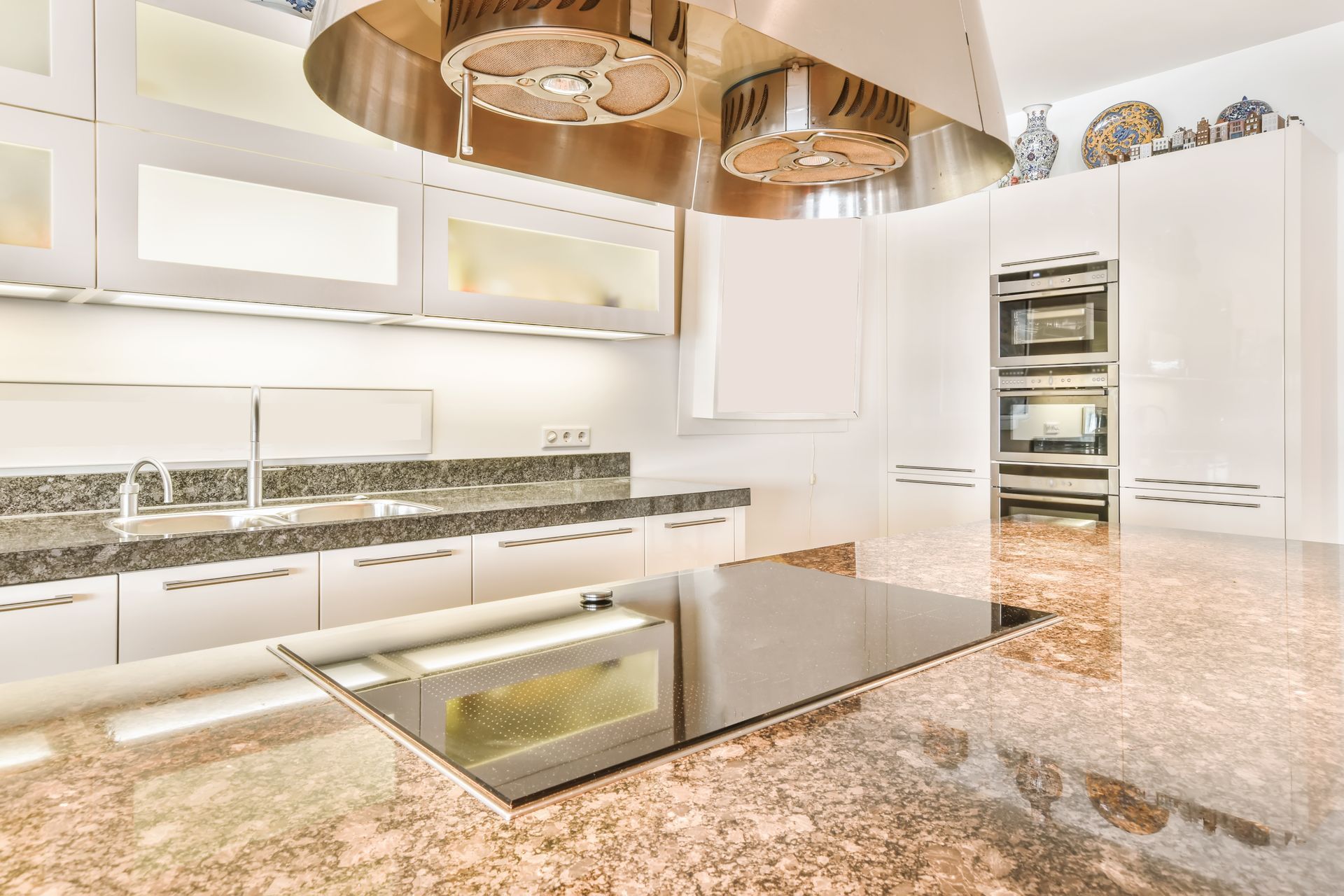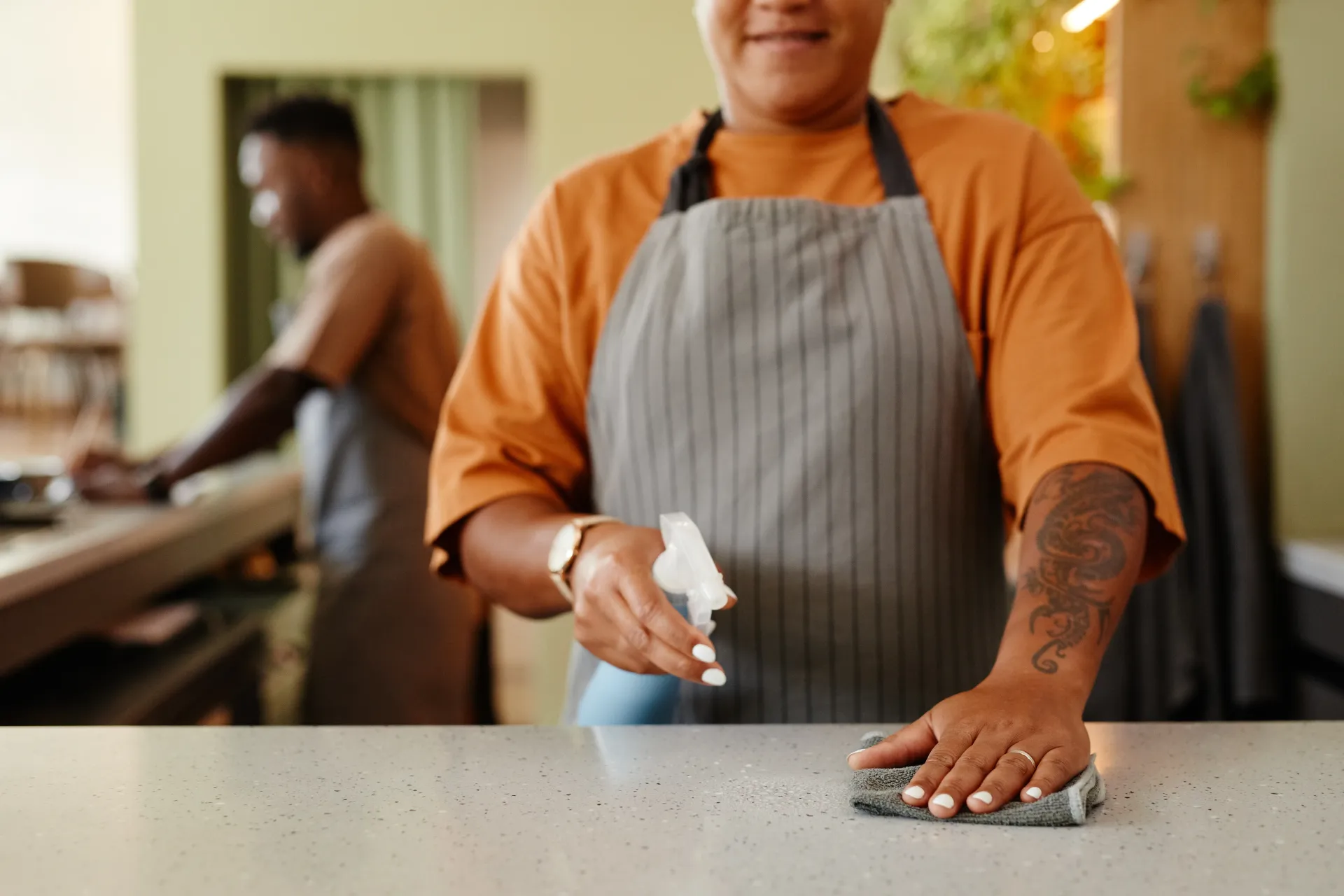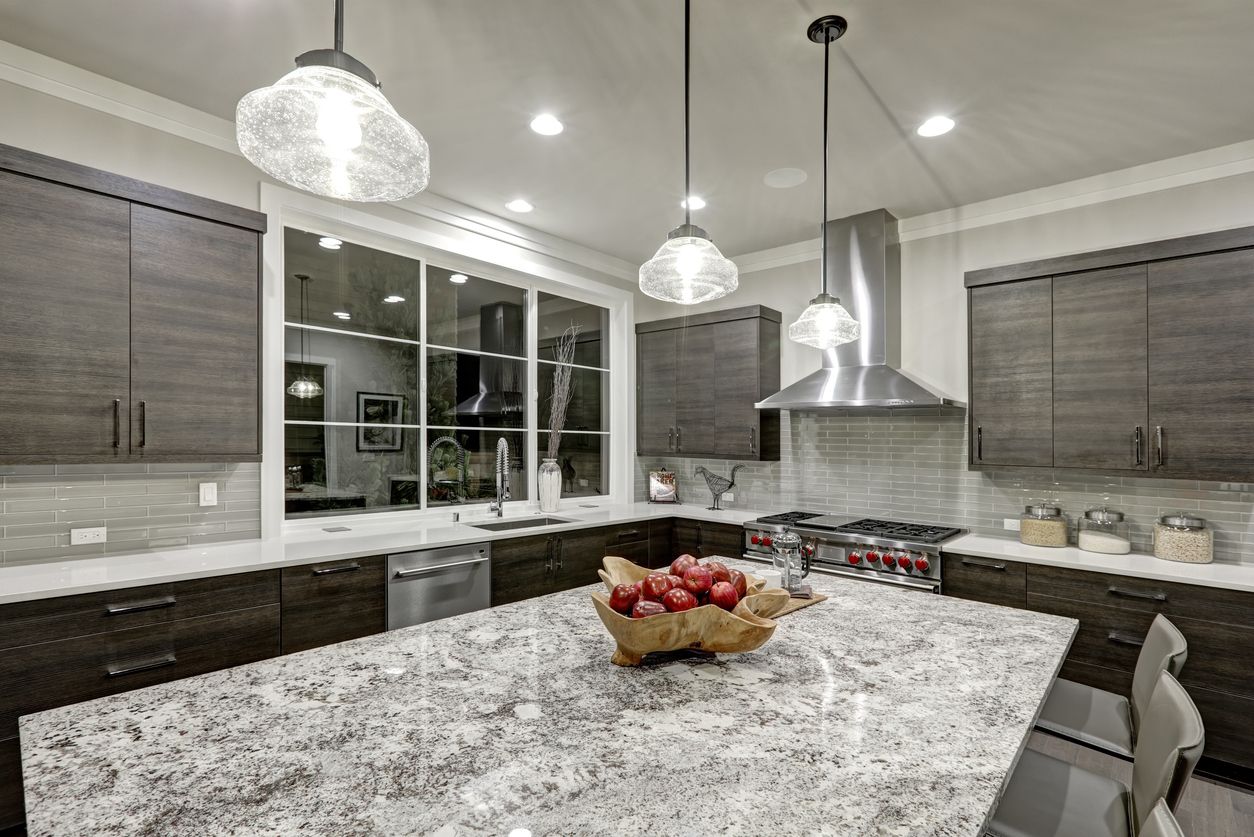Granite and Natural Stone Countertops vs. Other Materials: Which Is Right for Your Home?
Choosing the right countertop material can be one of the most important decisions in a kitchen or bathroom renovation. With countless options on the market, homeowners often find themselves debating between classic choices like granite or natural stone and alternatives such as quartz, laminate, or solid surface. Each material comes with its own set of benefits and drawbacks, and finding the best fit depends on your style, budget, and lifestyle. Here's a detailed comparison to help you weigh your options.
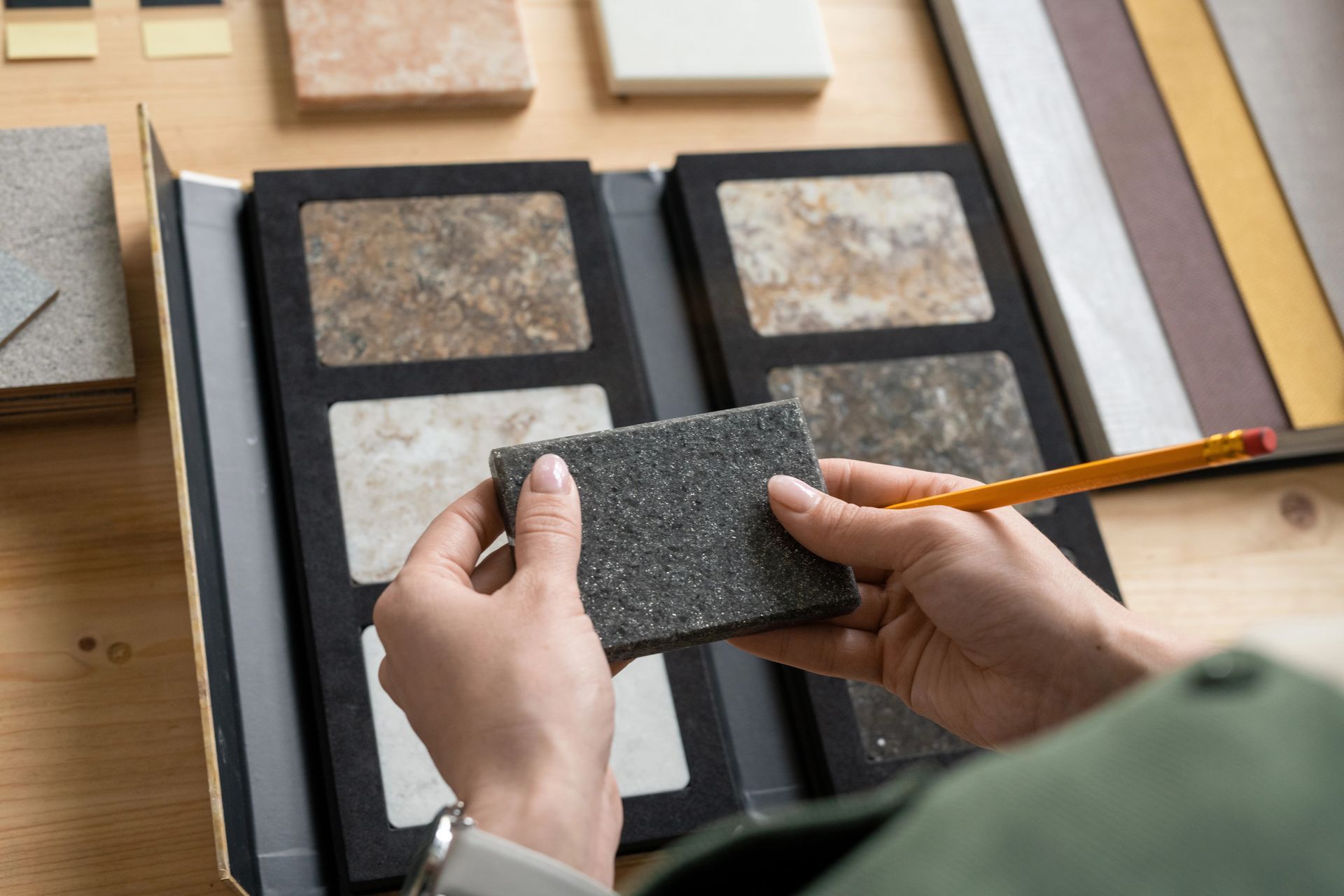
Why Granite and Natural Stone Stand Out
Pros of Granite and Natural Stone
- Durability: Natural stone countertops, including granite, are celebrated for their unparalleled durability. Granite is highly resistant to scratches, heat, and everyday wear and tear, making it ideal for kitchens where heavy cooking happens. It’s less likely to crack or chip under normal conditions compared to many synthetic materials.
- Unique Aesthetic: Every slab of granite or natural stone is one of a kind, creating a unique statement in your kitchen or bathroom. The natural variations in colour and veining add character and elegance that synthetic materials cannot replicate.
- Value Addition: Natural stone countertops are considered a premium choice and increase the resale value of a home. Prospective buyers often see granite countertops as a sign of quality and luxury.
- Eco-Friendly Nature: Granite and many natural stones are quarried directly from the earth and require minimal processing; they are considered more eco-friendly than many heavily manufactured alternatives.
Cons of Granite and Natural Stone
- Cost: Granite is one of the pricier options, with costs for material and installation ranging from $40 to $200 per square foot, depending on the stone's rarity and source.
- Maintenance: While durable, natural stone countertops are porous and require periodic sealing to prevent staining from liquids like wine, oil, or coffee.
- Weight: Due to its density, granite is very heavy, which may necessitate reinforced cabinetry and professional installation.
Comparing Granite to Other Countertop Materials
Now, let's examine how granite stacks up against some of the most popular alternatives by evaluating durability, cost, maintenance, aesthetics, and environmental impact.
Quartz Countertops
Quartz countertops are engineered, combining natural quartz crystals with resins and pigments to create a non-porous material.
Pros:
- Low Maintenance: Quartz doesn't need sealing and is highly resistant to stains.
- Wide Variety: Comes in an array of consistent colours and patterns.
- Durability: Resistant to scratches and chips.
Cons:
- Less Unique: Since quartz is manufactured, it lacks the individuality and natural aesthetics of granite.
- Heat Sensitivity: Extreme heat can damage quartz, whereas granite can handle hot pans without a problem.
- Cost: Comparable to or slightly more expensive than granite, averaging $50-$150 per square foot.
Best For: Homeowners seeking a low-maintenance, durable alternative with uniform patterns.
Laminate Countertops
Laminate countertops are made with layers of synthetic material bonded together. The surface is often printed with visuals mimicking stone or wood.
Pros:
- Affordable: Laminate is one of the most budget-friendly options, costing around $10-$40 per square foot.
- Variety: It can replicate the look of stone, wood, or other materials.
- Lightweight: Easy to install and doesn't require structural reinforcements.
Cons:
- Durability: Laminate is prone to scratches, burns, and moisture damage if not properly maintained.
- Upscale Appeal: While cost-effective, laminate may not add significant value to your property.
- Limited Lifespan: It typically needs replacing after 10-15 years.
Best For: Budget-conscious homeowners or those doing a quick, cost-effective kitchen update.
Solid Surface Countertops
Solid surface countertops, like Corian®, are made from acrylic and polyester blends, offering a seamless appearance.
Pros:
- Repairability: Scratches and minor damage can be sanded out.
- Non-Porous: No sealing required, and they resist stains and bacterial buildup.
- Customizable: Can be thermoformed into different shapes and sizes.
Cons:
- Scratch and Heat Prone: Susceptible to scratching and burns from hot pans, unlike granite.
- Plastic Feel: Some users find it less luxurious compared to natural stone.
Best For: Those looking for a modern, seamless look who value low maintenance over extreme
durability.
Other Factors to Consider When Choosing Your Countertop
- Lifestyle: Evaluate how you use your kitchen or bathroom. If you often cook with hot pans and sharp knives, durability should be a top priority. Granite and quartz shine in this regard; laminate and solid surface may not hold up as well.
- Budget: Granite and quartz are premium options that elevate any space but come at a higher upfront cost. Laminate and solid surface, on the other hand, are more affordable alternatives.
- Maintenance: If easy upkeep is a must, quartz and solid surfaces offer a non-porous, low-maintenance solution. However, if you’re willing to invest some time in sealing and care, granite provides timeless beauty and durability.
- Design Preference: Natural stone offers unmatched uniqueness in pattern and veining, while quartz and laminate provide more predictable and uniform designs. Solid surfaces cater to modern tastes with their sleek, seamless appearance.
- Eco-Consciousness: Granite and natural stones are more eco-friendly in terms of material sourcing, whereas some quartz and laminate options involve significant manufacturing processes. Look for sustainable certifications when considering manufactured materials.
Making the Right Choice for Your Home
Choosing the perfect countertop material ultimately comes down to balancing your priorities. For a high-end, natural look with excellent durability, granite and natural stone should top your list. If low
maintenance with consistent designs is more critical, quartz or solid surface may be better suited to your needs. Budget-conscious homeowners will appreciate the affordability of laminate, though it may require more frequent replacements.
Remember, countertops are an investment in your home’s value and functionality. Take the time to
research, compare materials in person, and consult with professionals to understand what works best for your lifestyle and aesthetic goals.
No matter what you choose, the right countertop can transform your space into a beautiful and practical center of daily life.
